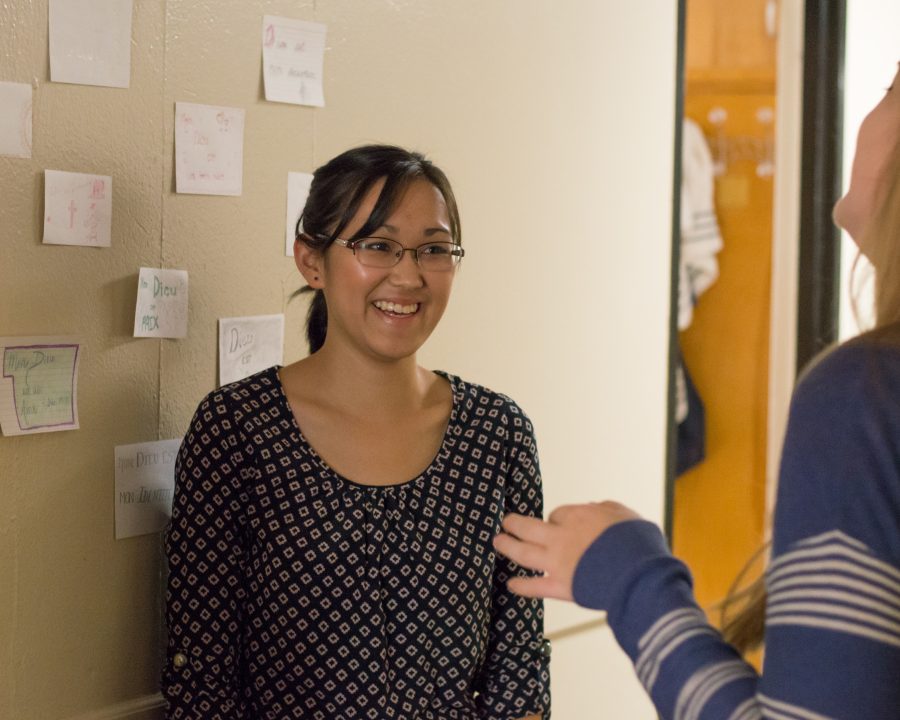This year, for the first time in BJU history, the University has introduced language halls.
Last year, in a meeting held by Dr. Jeremy Patterson, chair of the Division of Modern Language and Literature, students were told that BJU was looking for a way to push the boundaries of language education out of the textbook and classroom and into the real world.
The University wanted students to have a deeper experience in their languages.
On the halls, the students become totally committed to their chosen language. They interact, converse and pray solely in that language within the designated space of their residence halls and its inhabitants.
Two Spanish halls in Creel, one Chinese hall in Sunday and one French hall in Mack are offered for women participants.
A Spanish hall for the men participants is located in Johnson.
Students sign a pledge to speak to one another within and outside of the halls in that language only. This pushes the learning experience to a new extreme.
Yani Juve, a junior Christian ministries major from Spain, is one of the native speakers who lives on the women’s Spanish hall.
“Practice [of a language] makes such a difference in its learning,” Juve said, “there is progress and improvement little by little.”
In the women’s Spanish hall, there are six rooms, two group leaders and two native speakers, making it the largest language hall.
“The first week, the first two weeks, it was very hard for the girls to talk,” Juve said.
“At first their prayers in discipleship group were 30 seconds long, but things are developing. It is easier for the girls to be with non-native speakers because they feel more comfortable,” Juve said. “They are not perfect, but they are all learning together.”
Junior elementary education major Bethany Nething is one of the non-native speakers on the same hall.
“[This experience] has forced me to think in another language constantly, which has helped with speaking the language a little more comfortably,” Nething said.
Nething hopes that the halls will gain more students and native speakers in the future so that she can become more accustomed to hearing the language at its natural speed.
She agrees that hearing a native speak and trying to understand can be intimidating at first, but after a while she is already seeing her level of comprehension grow.
But BJU students have found that the halls are not just a benefit for the people learning the language for the first time.
Josh Aguilar, a sophomore Bible major, is a native Spanish speaker who experienced an alternative benefit of the halls.
“Having to focus on speaking my first language after getting accustomed to always speaking English was challenging,” Aguilar said, “but it definitely helped improve my native tongue.”
Raúl Erlando López Yazdani III, a junior history major, is also a native Spanish speaker in the men’s language hall.
“I’ve had to speak much slower and think more before I speak so I can be able to speak as clearly as possible,” he said.
“I am learning how to teach people.” Yazdani also believes the experience has brought their hall closer together.
“The men on Spanish hall have other native speakers on the floor who congregate to the Spanish hall and contribute to the social atmosphere that helps students to gain immersion,” Yazdani said.
“Non-native speakers hear the native speakers talk and interact on a more casual level than in class,” he said.
Overall, the language hall students not only gain immersion but also have a unique opportunity at discipleship.
Students are learning together, making mistakes and supporting one another throughout this experience.
They are strengthening their human experiences in a world where Christians speak languages other than English and the Gospel is shared in many languages.






















































